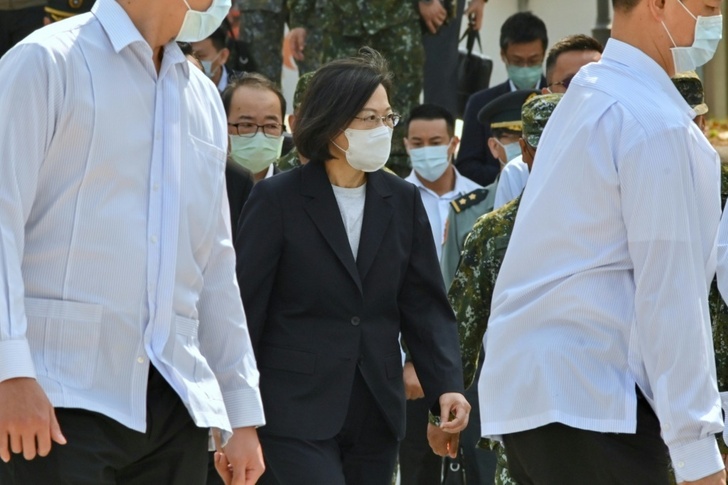Taiwan President Tsai Ing-wen was due to leave for the United States on Wednesday, a stop on her way to firm ties with Guatemala and Belize after China snapped up another of the self-ruled island's few diplomatic allies last week.
Belize and Guatemala are among just 13 countries that officially recognise democratic Taipei over Beijing, after Honduras opened diplomatic relations with China on Sunday.
China claims the self-ruled island as part of its territory, to be retaken one day -- by force, if necessary. Under its "One China" principle, no country may maintain official ties with both Beijing and Taipei.
After first visiting New York, President Tsai will continue her 10-day trip by meeting her Guatemalan counterpart Alejandro Giammattei and Belize Prime Minister John Briceno, her office said.
She will then stop in Los Angeles on her way back to Taiwan.
US House Speaker Kevin McCarthy has said he will meet Tsai in California, a move protested by Beijing. Taiwanese authorities have not confirmed the meeting with McCarthy, or Tsai's itinerary while in New York.
Last year, a visit by McCarthy's predecessor to Taiwan sparked an angry response from Beijing, with the Chinese military conducting drills at an unprecedented scale around the island. Taipei said the exercises were preparation for an invasion.
- Official vs unofficial ties -
Analysts say the Taiwanese president's US stopover comes at a key time, with Beijing having ramped up military, economic and diplomatic pressure on the island since Tsai came to power in 2016, poaching nine of its diplomatic allies since then.
"Beijing's attempts to poach Taiwan's diplomatic partners will lead to Taiwan developing closer ties with the United States," said James Lee, a researcher on US-Taiwan relations at Taiwan's Academia Sinica.
While the visit had been on the cards before Honduras announced its switch, Lee said the timing of the trip does have "symbolism".
The United States remains Taiwan's most important international ally -- and its biggest arms supplier -- despite having switched its own diplomatic recognition to Beijing in 1979.
Lee said the strength of Taiwan's unofficial allegiances was as important as any official ties.
"The loss of official relations with third countries will be offset by a deepening of Taiwan's unofficial relations," he said.
China bristles not only at official exchanges, but also opposes visits by politicians from countries with whom Taiwan has unofficial relations.
This week, Czech parliamentary speaker Marketa Pekarova Adamova led a large delegation from her country, while Germany's education minister last week made her country's first cabinet-level visit to the island in 26 years.
Neither country maintains official ties with Taiwan, but the meetings still provoked angry responses from Beijing, where a foreign ministry spokesman termed the German trip "malicious".
aw-aha/cwl
© Agence France-Presse
Your content is great. However, if any of the content contained herein violates any rights of yours, including those of copyright, please contact us immediately by e-mail at media[@]kissrpr.com.
Source: Story.KISSPR.com

